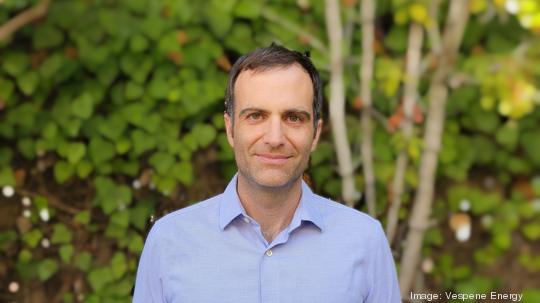
Bitcoin mining, widely criticized by environmentalists for its immense power usage, is estimated to consume as much electricity as the nation of Ukraine, according to Digiconomist, a site that tracks Bitcoin energy usage. Computers around the world must solve increasingly complex equations to create new bitcoins and process transactions, and some draw electricity from less-than-ideal sources like coal plants.
But a Berkeley startup is testing a solution that could make the mining process more eco-friendly and even carbon negative.
Vespene Energy has devised a way to use methane gas emitted by landfills to power bitcoin mining rigs and incentivize landfills to electrify their operations. It recently closed a $4.3 million financing round led by Polychain Capital.
Every landfill emits large amounts of methane, a greenhouse gas far more potent at trapping heat in the atmosphere than CO2. Some landfills flare, or burn, the methane to reduce its environmental impact, but not every landfill does, usually because of costs.
“Seventy-two percent of U.S. landfills don't have any viable use for the gas that they produce and as a result, it's either flared on site, just for purposes of mitigating methane, or in a lot of cases that that methane is just really emitted to the atmosphere,” said Adam Wright, co-founder and CEO of Vespene. “So we can build out a landfill site with micro turbines and use the methane combustion to power them, then use the power for on site Bitcoin mining and send the data out via satellites.”
He says Vespene already has a contract with a landfill in Central California, but has not made the specifics public yet, and is currently constructing the infrastructure needed to make the mining possible.
Wright said the company is focusing on landfills in more rural areas far from power grids or other infrastructure that make it difficult to find other uses for the methane emissions. Landfills close to cities often already use their methane to produce energy to sell to the power grid or refine it onsite into natural gas.
His hope is to get more landfills to flare their natural gas, thus reducing their carbon emissions, based on the economic incentives brought by mining bitcoin, essentially making bitcoin a tool for fighting climate change instead of a contributor to it. He says landfill operators could also use the electricity generated to power electric charging stations for vehicles among other uses.
"Some of the big waste management companies are trying to electrify their fleets and this is one way that we can really accelerate that transition," Wright said. "Normally if you want to get charging infrastructure to put in for your for your fleet, you have to be working with a utility to provide enough power for the chargers which can be time consuming and costly."
Vespene Energy currently has four employees, and Wright says the company will use its recent funding to expand its team and expand its infrastructure into more landfills.






